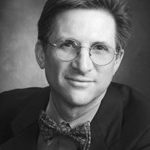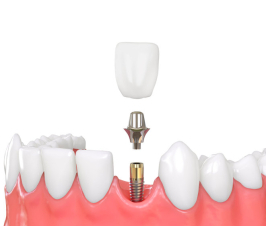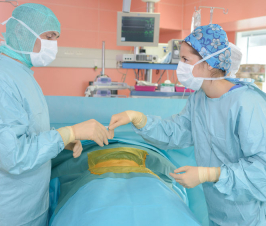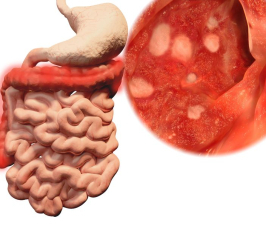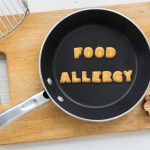Dr. Steven Sandberg-Lewis, ND, DHANP
The human microbiome (friendly intestinal flora) is a hot topic these days. The truth is that these organisms, outnumbering the total number of human cells in our bodies, are essential for health. They exert major effects on immunity, hormone balance and absorption of nutrients. Their numbers are normally smallest in the stomach, gradually increasing through the 3 portions of the small intestine (duodenum, jejunum and ileum) with the largest numbers in the colon. Bacteria are normally present in the small intestine in low numbers (1000/ml) compared to the very high numbers in the colon (10-100 billion/ml.) When the bacteria and related flora overpopulate the small intestine, many distressing symptoms can occur.
Symptoms of small intestine bacterial overgrowth
- Bloating/abdominal gas (belching, flatulence)
- Abdominal pain, cramps, muscle weakness
- Constipation, diarrhea or both
- Fatigue
- Heartburn
- Nausea
- Intestinal hyperpermeability (“leaky gut syndrome”)
- Malabsorption leading to anemia from chronic iron, B12 or folic acid deficiency
Factors that may allow bacteria to overgrow in the small intestine include:
- Abdominal surgery
- Weakening of the ileocecal valve
- Low production of stomach acid
- Drugs (use of proton pump inhibitors, morphine, oxycodone and hydrocodone, oral birth control pills, calcium channel blockers, antibiotics)
- Certain diseases (diabetes, hypothyroidism, some neurological disorders, inflammatory bowel disease, some autoimmune diseases)
- High carbohydrate diets
Diseases often associated with SIBO
- Hypothyroidism
- Irritable bowel syndrome
- Lactose intolerance
- Celiac disease
- Chronic pancreatitis
- Diverticulitis
- Crohns disease
- Skin diseases such as rosacea (adult acne)
- Restless leg syndrome
- Scleroderma
- Non-alcoholic steatohepatitis
- Diabetes with autonomic neuropathy
- Fibromyalgia
- Interstitial cystitis
- Chronic regional pain syndrome
- Hepatic encephalopathy
Key issues that may suggest a diagnosis of SIBO
- Problems that come on from taking opiate painkillers
- Problems aggravated by dietary fiber
- Problems that are aggravated by taking probiotics or prebiotics
- Carbohydrate intolerance
- Digestive or skin problems that miraculously improve for a short time while taking antibiotics only to return soon after
Diagnosis
This condition is often missed because doctors fail to test for it. The best test available is a breath test that measures hydrogen and methane gases produced by the organisms.
Treatment options
- The SIBO foodguide (see diet at www.siboinfo.com)
- The specific carbohydrate diet
- The GAPS (gut and psychology syndrome) diet
- The lowFODMAPs diet
- The Cedars-Sinai diet
- Antibiotics specific to this condition (rifaximin and/or neomycin or metronidazole)
- Herbal antibiotics – allicin, oregano, berberis, neem, etc
- Bacteriophages
- Prokinetics – these medications speed the movement of food in the small intestine (low dose erythromycin, low dose naltrexone, prucalopride, etc.)
- Probiotics without added prebiotics. Prebiotics are sugars that feed intestinal flora. Examples of prebiotics to be avoided in SIBO are fructooligosacharides (FOS) and inulin.
- Treating hypochlorhydria (low levels of stomach acid) if it is present
- Improving the function of the ileocecal valve (the muscular valve that separates the small and large intestines)
- Discontinuing causative medications (if other effective treatments are available to replace these)
- Fasting (or elemental diet)
Helpful resources
Websites
- http://www.siboinfo.com – this site is the most comprehensive collection of resources about SIBO available created by the SIBO specialist Dr. Allison Siebecker
- http://www.sibocenter.com – the official site of the NCNM SIBO center for digestive health
- http://www.scdlifestyle.com – a detailed “how to” site for the specific carbohydrate diet
- http://www.breakingtheviciouscycle.info – the original SCD website
- http://www.anewibssolution.com – SIBO researcher Dr. Mark Pimentel’s website
Books
- Breaking the Vicious Cycle, Elaine Gottschall (the original book on the specific carbohydrate diet) – see website above
- A New IBS Solution, Mark Pimentel, MD (Cedar-Sinai SIBO treatment protocol)
- SIBO – Missing Info That Changes Lives, Allison Siebecker, ND, MSOM (Publication date projected for June 2015)
Image Copyright: <a href=’https://www.123rf.com/profile_stylephotographs’>stylephotographs / 123RF Stock Photo</a>
Steven Sandberg-Lewis, ND, DHANP, has been a practicing naturopathic physician since his graduation from National University of Natural Medicine (NUNM) in 1978. He has been a professor at NUNM since 1985, teaching a variety of courses but primarily focusing on gastroenterology and GI physical medicine. His clinic rotations are particularly popular among NUNM doctoral students. In addition to supervising clinical rotations he also maintains a part-time practice at 8Hearts Health and Wellness in Portland, Oregon.
He is a popular international lecturer at functional medicine seminars, presents webinars, writes articles for NDNR and the Townsend Letter and is frequently interviewed on issues of digestive health and disease. He is the author of the medical textbook Functional Gastroenterology: Assessing and Addressing the Causes of Functional Digestive Disorders, Second Edition, 2017, which is available at amazon.com. In 2010 he co-founded the SIBO Center at NUNM which is one of only four centers in the USA for Small Intestine Bacterial Overgrowth diagnosis, treatment, education and research. In 2014 he was named one of the “Top Docs” in Portland monthly magazine’s yearly healthcare issue and in 2015 was inducted into the OANP/NUNM Hall of Fame.
Within gastroenterology, he has special interest and expertise in inflammatory bowel disease (including microscopic colitis), irritable bowel syndrome (including post-infectious IBS), Small Intestine Bacterial Overgrowth (SIBO), hiatal hernia, gastroesophageal and bile reflux (GERD), biliary dyskinesia, and chronic states of nausea and vomiting.
Many of the patients referred to Dr. Sandberg-Lewis have digestive conditions that have defied diagnosis and effective resolution. Often these patients desire naturopathic treatment options in lieu of the courses of treatments they have previously undergone. He understands diseases of the gastrointestinal tract, but also can assess function and often find successful treatments to regain a balance in the digestive system.
Dr. Sandberg-Lewis lives in Portland with his wife, Kayle. His interests include mandolin, guitar and voice; cross country skiing; writing and lecturing.


